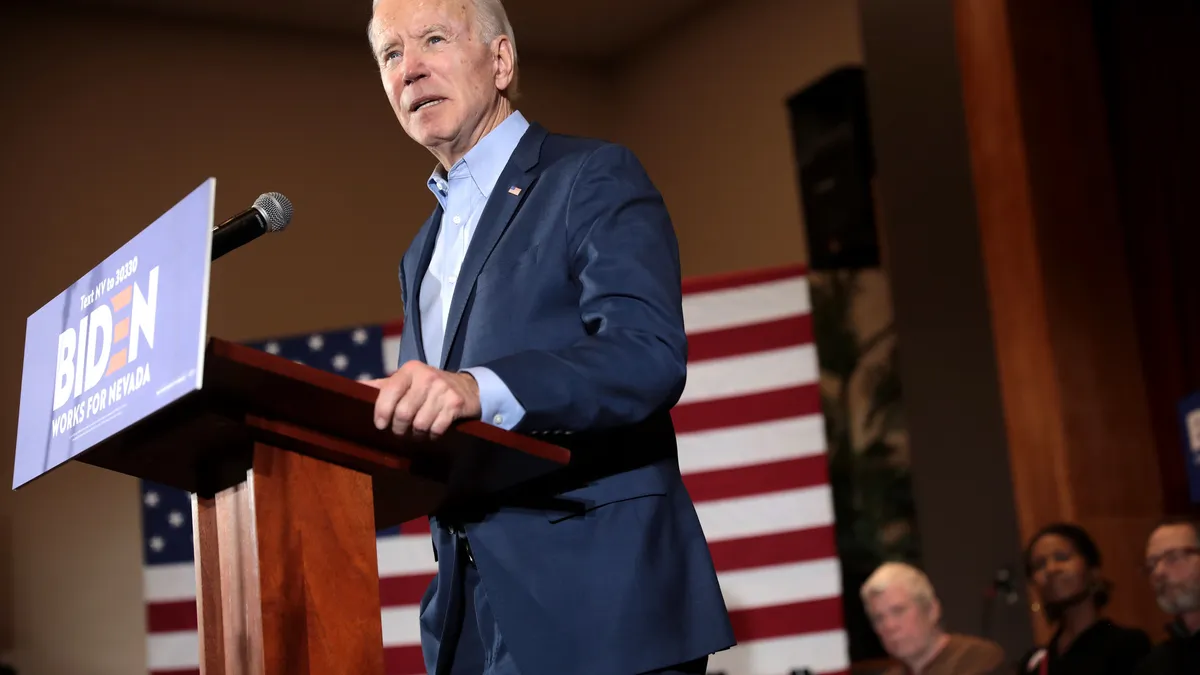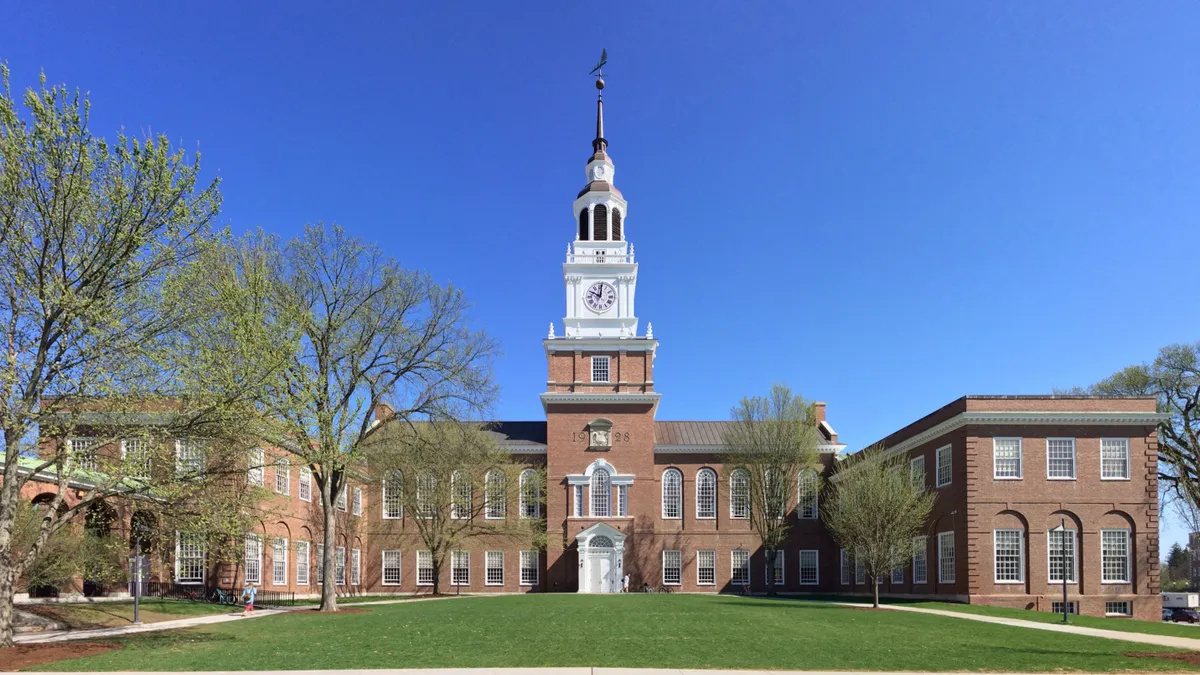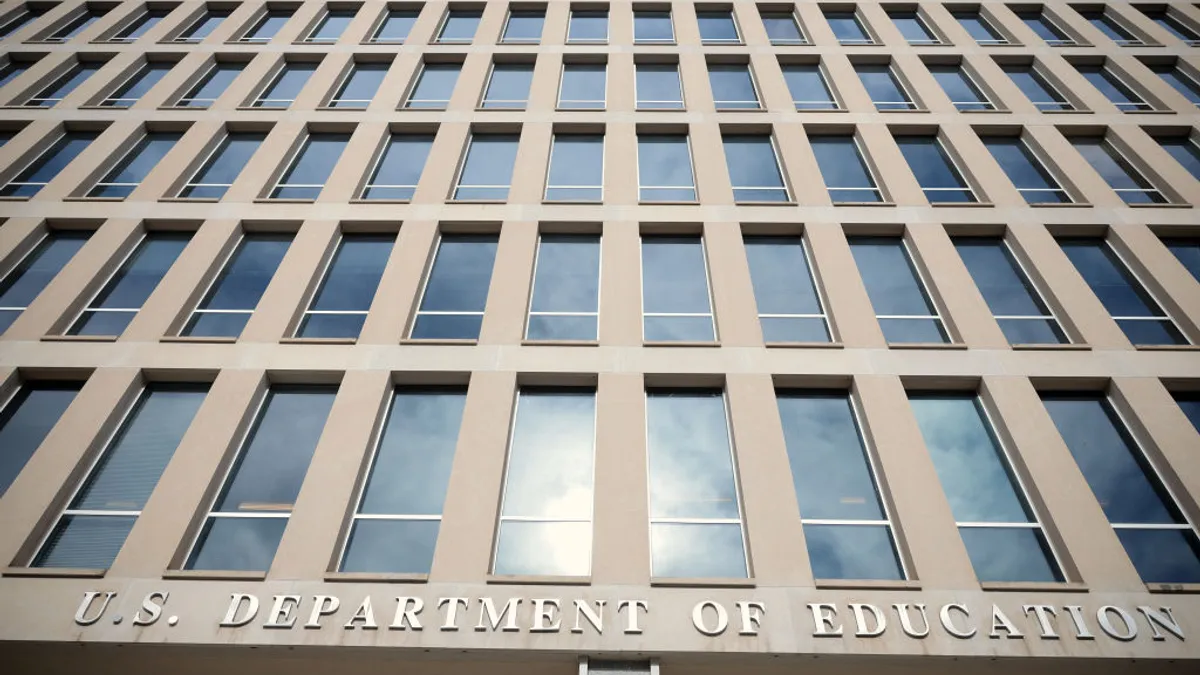Dive Brief:
-
President Joe Biden's discretionary spending plan unveiled Friday would send nearly $103 billion to the U.S. Department of Education, with a big boost to the maximum federal Pell Grant award and new funding for minority-serving institutions.
-
The proposal increases the department's allocation by more than 40% over the fiscal 2021 budget. It includes a $400 increase to the maximum Pell award, a "significant first step" in a push to double the full amount, and makes the aid available to some unauthorized immigrant students, the White House said Friday.
-
Biden's proposal is an about-face from the Trump administration's requested educational budget cuts, which Congress largely rejected.
Dive Insight:
Despite the proposed spending increase, Biden's Pell proposal is likely to disappoint advocates who have pressed federal officials to double the maximum award amount. Nearly 1,200 groups wrote to Congress recently calling on lawmakers to do so. This is a particularly relevant request, they argue, as the pandemic continues to wreak economic havoc. The health crisis has disproportionately affected Black and Hispanic students and those from Indigenous communities.
However, a $400 boost to the maximum Pell Grant would be the largest one-time increase since 2009, the administration said. It would invest an additional $3 billion in the program, which would help bring the maximum award to $6,895.
Biden's request would also make Pell Grants available to participants of the Deferred Action for Childhood Arrivals program, who are unauthorized immigrants who came to the U.S. as children. DACA shields them from deportation and creates pathways for educational and work opportunities.
The draft budget also offers $600 million more for "institutional capacity and student support" programs at MSIs, historically Black and tribal colleges, and low-resource institutions such as community colleges. The White House did not specify which programs would benefit from the spending boon.
An additional $100 million would be set aside for initiatives that aim to raise participation in STEM among students from racial and ethnic groups who are traditionally underrepresented in those fields.
UNCF, an advocacy group for private HBCUs, applauded Biden's proposal. Its president and chief executive, Michael Lomax said the organization hopes more investments are to come.
"After UNCF studies the budget details more, I am sure we will continue to push Congress to sustain these increases, and maybe advocate for more," Lomax said in a statement.
A representative from the American Council on Education, higher education's top lobbying group, said it does not anticipate making an immediate statement on the budget plan. In a tweet on Friday, however, it said doubling the Pell Grant and expanding it to DACA recipients are "urgently needed."
Other educational investments in the draft include $144 million for the department's Office for Civil Rights, a 10% increase, and $1 billion for the U.S. Department of Justice to beef up programs enacted under the Violence Against Women Act of 1994, which includes support for women at MSIs. Biden helped construct the landmark law and was on the forefront of helping with the Obama administration's efforts to mitigate campus sexual misconduct.
Congress must approve the budget bill. It has already received criticism from prominent Republicans, including Senate Minority Leader Mitch McConnell, though their comments mostly focused on defense spending.








